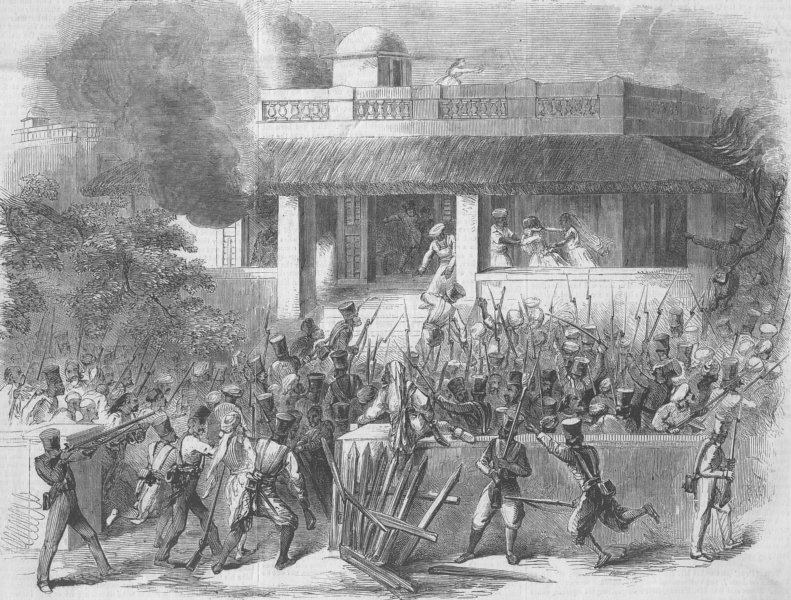
On May 10, 1857, the Indian troops of the East India Company’s army started an uprising against the British soldiers in the garrison town of Meerut.
Lord Canning, the Governor-General, first heard of the Mutiny in a curious fashion. The Lieutenant-Governor of Agra passed on to him a copy of a private telegram which had been sent by the British postmaster at Meerut before the line was cut. The postmaster’s aunt was in Agra and had planned to visit him. He wired that the cavalry had risen, houses were on fire and Europeans were being killed. ‘If aunt intend starting tomorrow evening please detain her.’ It was several days before the Governor-General of India could learn more than this of what had taken place in Meerut. Only gradually did the news of what had happened and what was happening in northern India seep out to the rest of the world.
That’s from Byron Farwell, Queen Victoria’s Little Wars, 1973. Related: On Sept. 1, 1939, English journalist Clare Hollingworth called the British embassy in Warsaw to report that Germany had invaded Poland. The secretary told her this was impossible, as Britain and Germany were still negotiating. “So I hung the telephone receiver out of the window,” she later recalled, “so he could listen to the Germans invading.” Hers was the first report that the British Foreign Office received of the invasion — later described as “the scoop of the century.”
